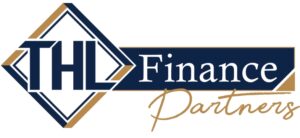Overview
You can access your super early in very limited circumstances, including to pay certain expenses on compassionate grounds, as well as terminal illness, incapacity and severe financial hardship.
Access on compassionate grounds
You may be allowed to withdraw your super early on compassionate grounds to pay for:
- medical treatment for you or your dependant
- medical transport for you or your dependant
- modifications to your home or vehicle to accommodate your or your dependant’s special needs arising from a severe disability
- palliative care for you or your dependant
- death, funeral or burial expenses of your dependant
- preventing foreclosure or forced sale of your home
For release on compassionate grounds, you need to meet all eligibility conditions and provide the relevant documents to support your application. Applications that don’t include these documents may be delayed or not approved.
Applications can be made via ATO Online, or on their paper form where you don’t have access to the ATO’s online services.
The super you withdraw on compassionate grounds is paid and taxed as a normal super lump sum.
Access due to a terminal medical condition
You may be able to access your super if you have a terminal medical condition and all these conditions are met:
- Two registered medical practitioners have certified, jointly or separately, that you suffer from an illness or injury that is likely to result in death within 24 months of the date of signing the certificate.
- At least one of the registered medical practitioners is a specialist practising in an area related to your illness or injury.
- The 24-month certification period has not ended.
Contact your super fund to request access to your super due to a terminal medical condition. Your fund must pay your super as a lump sum. For the payment to be tax-free you must have a terminal medical condition either:
- at the time of the payment
- within 90 days of receiving the payment.
If you have a terminal medical condition and you have super held by the ATO you can claim it through your super fund or directly from the ATO.
For more information see Access due to a terminal medical condition.
Access due to severe financial hardship
You may be able to withdraw some of your super if you are experiencing severe financial hardship. Access on grounds of severe financial hardship is not administered by the ATO. You need to contact your super provider to request access due to severe financial hardship.
There are no special tax rates for a super withdrawal because of severe financial hardship. Withdrawals are paid and taxed as a normal super lump sum. If you’re under 60 years old, this is generally taxed at between 17% and 22%. If you’re over 60 years old, you won’t be taxed unless the lump sum includes an untaxed element.
Eligibility
Eligibility for access due to severe financial hardship depends on your age in relation to your preservation age. For example, if your preservation age is 55 and you’re under 55 years and 39 weeks old, you need to satisfy the conditions under 1 below.
1. Under preservation age plus 39 weeks
If you’re under your preservation age plus 39 weeks, you need to meet both these conditions:
- You have received eligible government income support payments for a continuous period of 26 weeks.
- You are not able to meet reasonable and immediate family living expenses.
The minimum amount that can be withdrawn is $1,000 and the maximum is $10,000. If your super balance is less than $1,000 you can withdraw up to your remaining balance after tax.
You can only make one withdrawal in any 12-month period.
2. Reached preservation age plus 39 weeks
If you’ve reached your preservation age plus 39 weeks, you need to meet both these conditions:
- You have received eligible government income support payments for a cumulative period of 39 weeks after you reached your preservation age.
- You were not gainfully employed at the time of applying.
There are no restrictions on how much you can withdraw if you meet the age and the other 2 conditions.
How to apply for access due to financial hardship
You need to apply to your super fund directly for release of super on financial hardship grounds. The ATO does not process severe financial hardship requests.
If your super provider requests evidence, you can ask Services Australia to provide a letter confirming you have received eligible government income support payments for the relevant period.
For more information on how to apply for early access to your super because of financial hardship, see If you need to apply because of financial hardship at Services Australia.
Access due to temporary incapacity
You may be able to access your super if you are temporarily unable to work, or need to work fewer hours, because of a physical or mental medical condition.
This condition of release is generally used to access insurance benefits linked to your super account.
You’ll receive the super in regular payments (an income stream) over the time you are unable to work. There are no special tax rates for a super withdrawal due to temporary incapacity. Withdrawals are paid and taxed as a super income stream.
Access due to permanent incapacity
You may be able to access your super if you are permanently incapacitated. This type of super withdrawal is sometimes called a ‘disability super benefit’.
Your fund must be satisfied that you have a permanent physical or mental medical condition that is likely to stop you from ever working again in a job you were qualified to do by education, training or experience.
You may still be eligible to withdraw your super where you meet the above criteria, but are undertaking other work, such as light duties in a different position or casual work in a different field.
You can receive the super as either a lump sum or as regular payments (income stream).
To receive concessional tax treatment, a super withdrawal due to permanent incapacity must be certified by at least 2 medical practitioners.
Contact your super fund to request access to your super because of permanent incapacity.
To work out how your super payment will be taxed you need to know how much of the money in your super account is a:
- tax-free component
- taxable component the super provider has paid tax on (taxed element)
- taxable component the super provider has not paid tax on (untaxed element).
If you’re under your preservation age and receive a disability benefit as an income stream, you’ll get the super income stream tax offset that reduces the tax rate on the taxed element of your taxable component by 15%.
If you’ve reached your preservation age or if you get a lump sum, your disability benefit will be taxed at the rates described in Tax on super benefits.
Super balance less than $200
You may be able to access your super if:
- your employment is terminated and the balance of your super account is less than $200
- you have found a ‘lost super’ account with a balance less than $200.
Contact your provider to request access. Check the eligibility criteria for withdrawing super from ATO-held accounts.
No tax is payable when accessing super accounts with a balance less than $200.
Illegal early release and scams
Illegal early release
Some promoters claim to offer early access to your super by transferring it into a self-managed super fund. These schemes are illegal, and heavy penalties apply if you get involved. For more information, see Illegal early release of super.
Be aware of scams and schemes
Be alert to scams or schemes where people:
- impersonate the ATO, or a trusted organisation like your super fund, to steal your money or personal identifying information
- contact you and charge for services that are free, like gaining early access to your superannuation.
If you receive a phone call, text message or email offering to help you release your super early, do not:
Stolen or misused identity
If you’re concerned that someone has accessed your super without your permission, you should check your:
- myGov and ATO Online account and make sure your contact details are still correct
- superannuation account to make sure that your account details are also correct, and that there have been no unauthorised transactions.
If you receive a text message or email stating that your myGov details have been changed, or that you have applied for early release of super when you have not, do not click on any links, and consider whether your identity has been compromised.
If you think that someone has stolen or misused your identity, contact both:
- your super fund immediately if you identify unauthorised transactions or updates to your account
- our Client Identity Support Centre on 1800 467 033 (between 8.00 am and 6.00 pm, Monday–Friday) to help you establish your tax identity.
Source: ato.gov.au August 2023
Reproduced with the permission of the Australian Tax Office. This article was originally published on https://www.ato.gov.au/individuals-and-families/super-for-individuals-and-families/super/withdrawing-and-using-your-super/early-access-to-super/when-you-can-access-your-super-early
Important:
This provides general information and hasn’t taken your circumstances into account. It’s important to consider your particular circumstances before deciding what’s right for you. Although the information is from sources considered reliable, we do not guarantee that it is accurate or complete. You should not rely upon it and should seek qualified advice before making any investment decision. Except where liability under any statute cannot be excluded, we do not accept any liability (whether under contract, tort or otherwise) for any resulting loss or damage of the reader or any other person.
Any information provided by the author detailed above is separate and external to our business and our Licensee. Neither our business nor our Licensee takes any responsibility for any action or any service provided by the author. Any links have been provided with permission for information purposes only and will take you to external websites, which are not connected to our company in any way. Note: Our company does not endorse and is not responsible for the accuracy of the contents/information contained within the linked site(s) accessible from this page.


